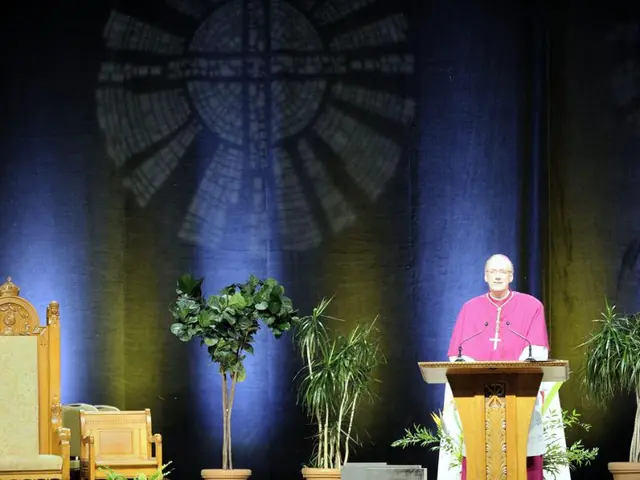Amit Shah's Immigration Remarks Spark Controversy, BJP Stands Firm on 3-D Policy
Union Home Minister Amit Shah has sparked controversy with his recent statements on immigration, citizenship, and the partition of India. Speaking at a public event, Shah claimed that Muslim population growth in certain regions is linked to illegal immigration and asserted that voting rights should only be available to Indian citizens.
Shah, who is also the president of the ruling Bharatiya Janata Party (BJP), outlined the government's 3-D policy regarding infiltrators: detect, delete, and deport. He differentiated between infiltrators and refugees, stating that the former cross borders illegally for economic reasons, while the latter seek asylum due to religious persecution.
Shah accused the opposition Congress party of blocking the Special Intensive Revision (SIR) of electoral rolls, claiming that it affects their vote banks. The ECI is duty-bound to conduct this exercise to ensure the purity of the voters' list, according to Shah. The BJP-led government follows this policy nationwide, with the Assam government under Chief Minister Himanta Biswa Sarma implementing it particularly strictly. The policy has been controversial, with human rights organizations criticizing its inhumane and discriminatory effects on marginalized groups.
Shah's statements have reignited debates on citizenship, immigration, and the partition of India. The BJP's commitment to its 3-D policy remains firm, with Shah reaffirming the party's stance. However, the policy's implementation continues to face criticism and legal challenges.
Read also:
- American teenagers taking up farming roles previously filled by immigrants, a concept revisited from 1965's labor market shift.
- Weekly affairs in the German Federal Parliament (Bundestag)
- Landslide claims seven lives, injures six individuals while they work to restore a water channel in the northern region of Pakistan
- Escalating conflict in Sudan has prompted the United Nations to announce a critical gender crisis, highlighting the disproportionate impact of the ongoing violence on women and girls.







